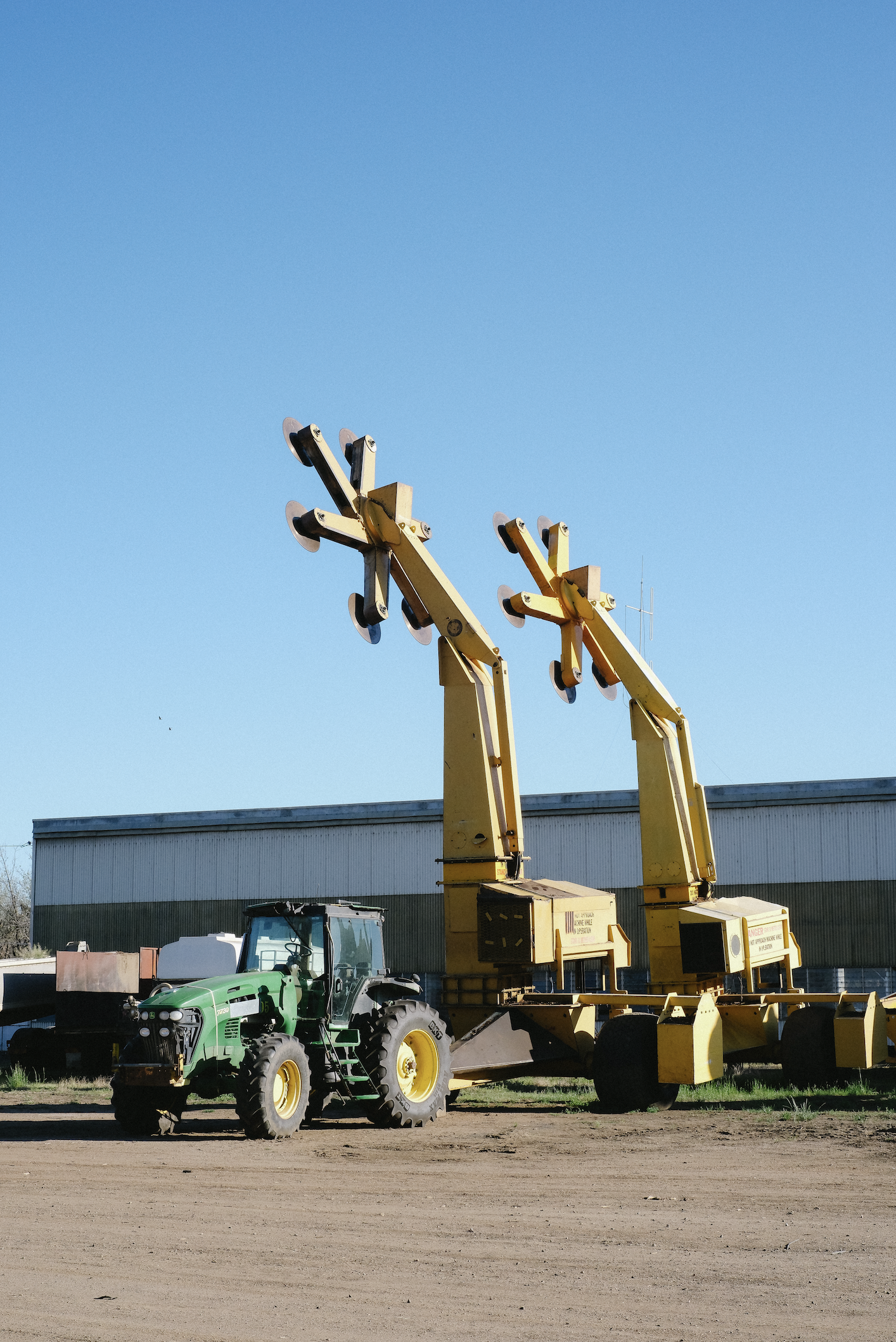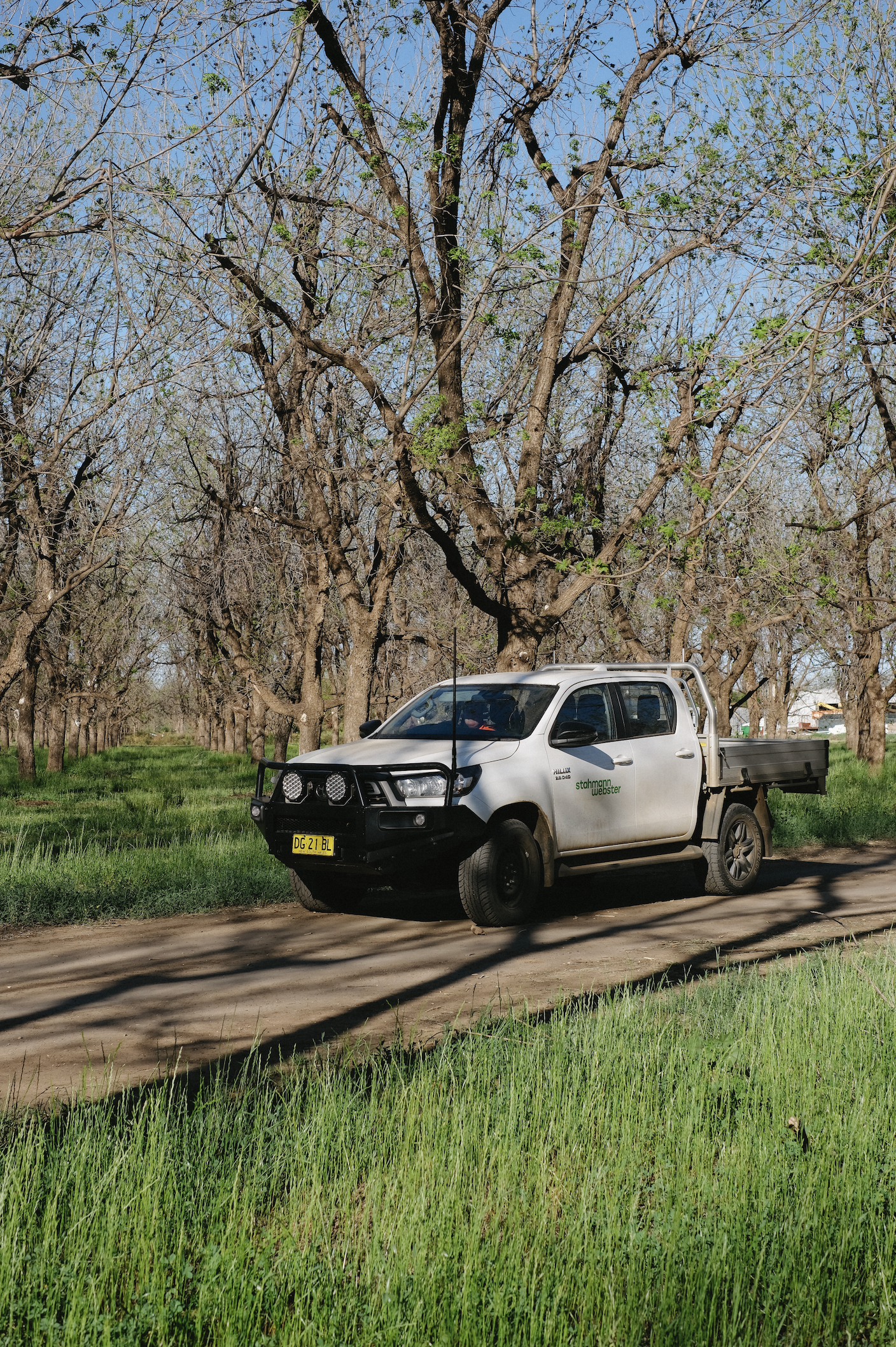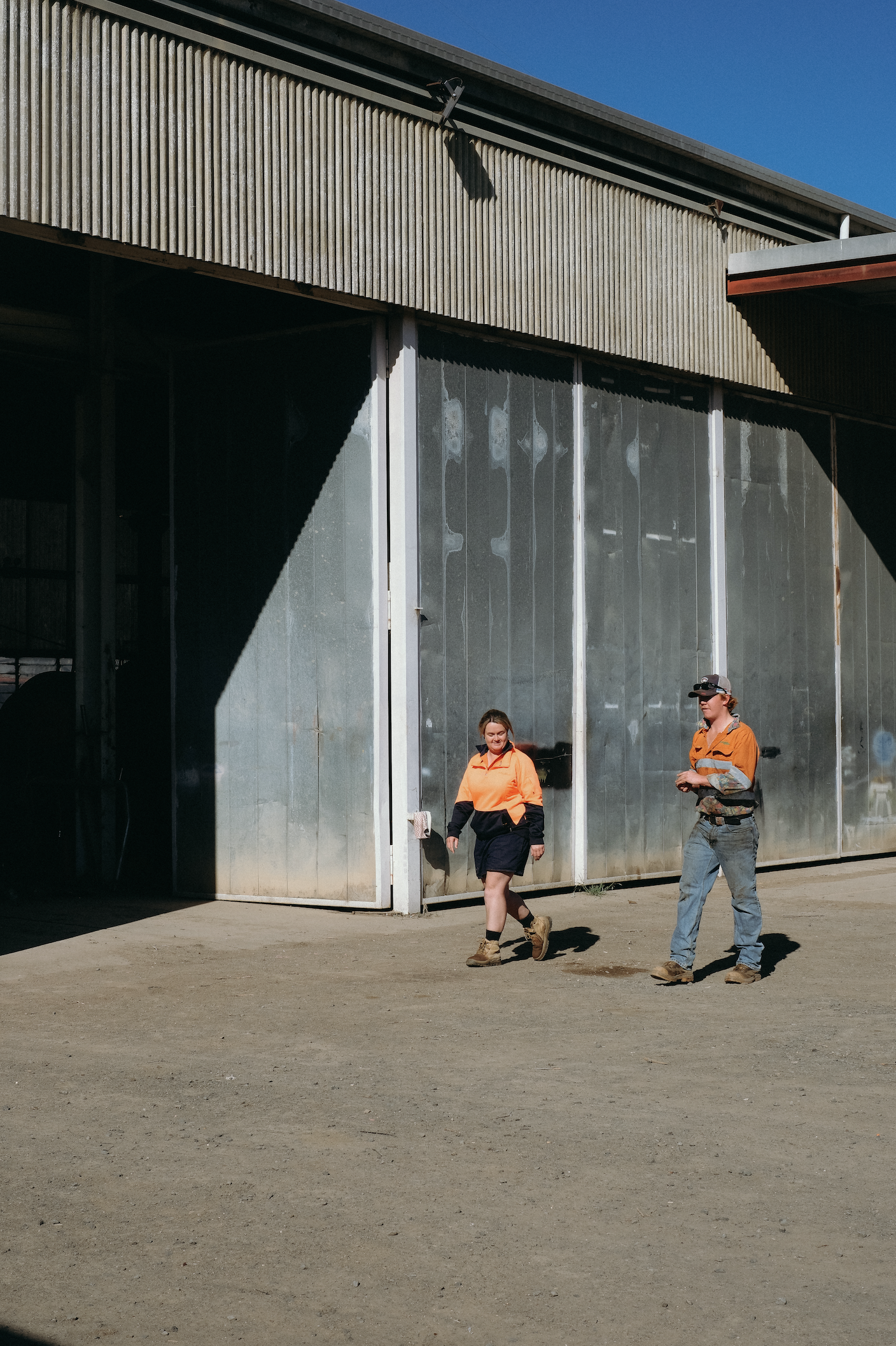Kirra McNamara
If you drive east out of Moree, past cotton fields and grain silos, you’ll find Stahmann Webster’s pecan farm. It’s here that Kirra McNamara has built her life and career among the rows of pecan trees that make up one of the region’s most quietly impressive agricultural enterprises.
Today, Kirra is the Pecan Business Unit Manager for Stahmann Webster, one of the largest pecan producers in the Southern Hemisphere. She started with the company in 2016 as an orchard hand, by 2024, she’d stepped into her current leadership role – overseeing the growth and production of more than 250,000 trees.
How long have you been working for Stahmann Webster?
I started with Stahmann Webster back in 2016 as an orchard hand, then I moved into the role of new development manager when we started establishing the younger orchards. I took on this new role as business unit manager in 2024.
Have you always had a connection to agriculture?
When I finished school I spent twelve months working in an office. I discovered that wasn’t for me so I started in ag and I haven't left. I just love agriculture; there is always a challenge and every day is different. I love being able to work with such a diverse group of people.
Do you think the nature of how a pecan farm runs – quite differently from a lot of farming operations – makes it more diverse?
Definitely, mainly because of the large casual workforce we need over harvest. We have so many different nationalities coming through, a lot of those employees return each year or we have friends of friends that become part of the team. We currently employ twenty-three full-time staff here at the Trawalla pecan farm, during harvest we have around sixty employees. Then we have our factory in Toowoomba where we send our nut-in-shell product to be cracked and packaged. Stahmann Webster also grows macadamias, walnuts, apples, mangoes, almonds, avocados – the list goes on! Here we have roughly 250,000 pecan trees on this farm; that's a lot of pecan pie.
How do you feel the role of women has shifted in agriculture throughout your career?
The presence of women in the industry has changed over the last ten years because there has just become such a variety of different roles that can be undertaken. Agriculture isn’t just driving tractors, there's so much more to be involved in. From science to finance and everything in between, there are so many opportunities for women in agriculture. I’m so thankful for where I am today, Stahmann Webster have provided me with so many opportunities. Even just in relation to my young family, they’re such a family-oriented business. For me to be able to live on-farm, it gives my kids the chance to grow up outside, in a farming environment.
Can you explain your role, what does your day-to-day look like?
No two days are the same but my main focus is managing and nurturing the trees. From looking after the new development to the productive orchards, making sure everything is running efficiently. Making sure we’ve got the right equipment to do the right task, ensuring we have enough people to get through harvest – there is always plenty to do.
How do you think we can best celebrate rural women?
I think women just want to be recognised and given opportunities in such a male-dominated workforce. They just want to be heard and listened to.
Is there something you’ve done throughout your career that you’re particularly proud of?
Definitely the establishment of the new orchard. Seeing the tree grow from the little pots they turned up in, and then seeing them harvested for the first time is very rewarding. A pecan tree is a permanent crop, and it can produce for up to 100 years – knowing that something you planted will be around that long is pretty special.






